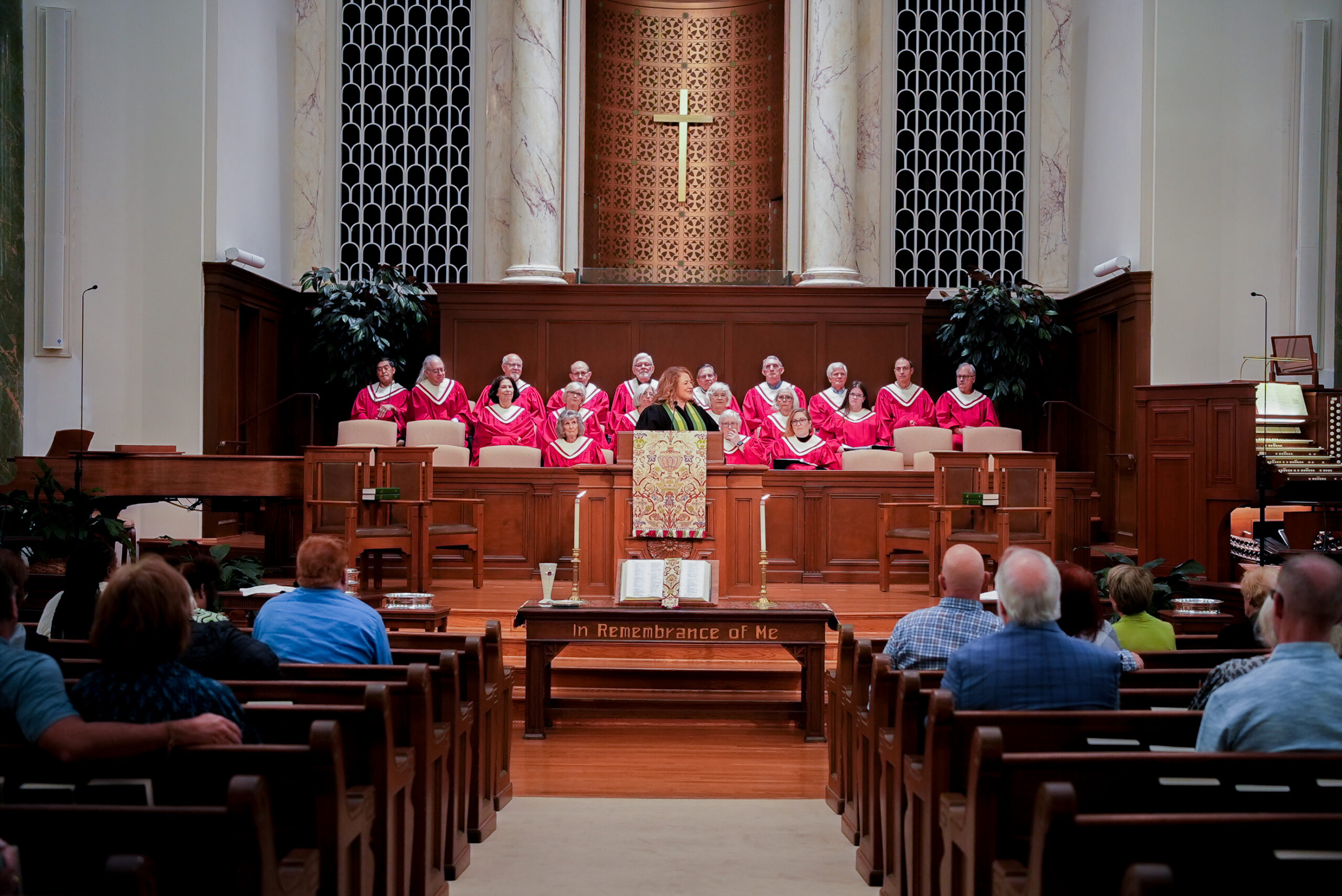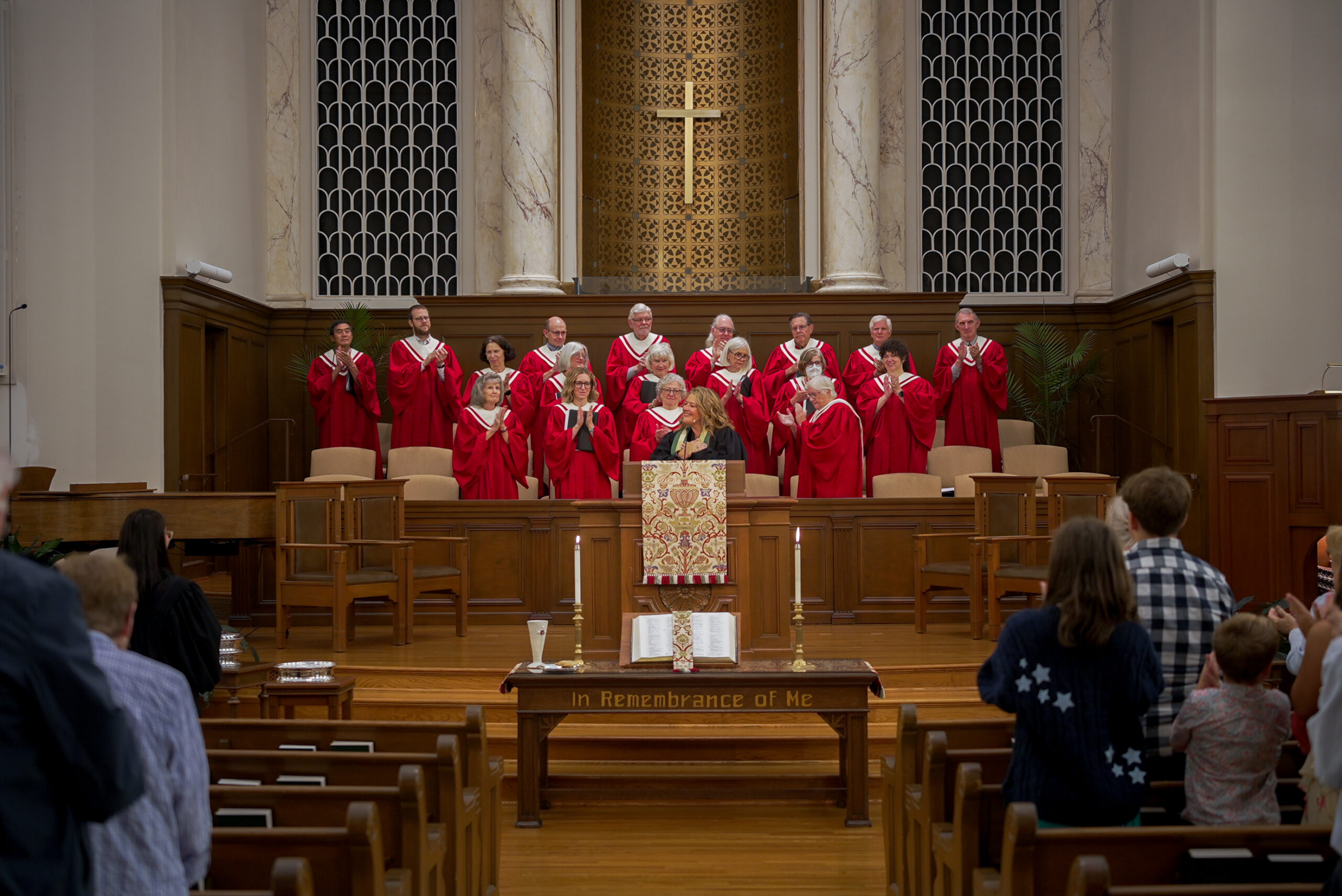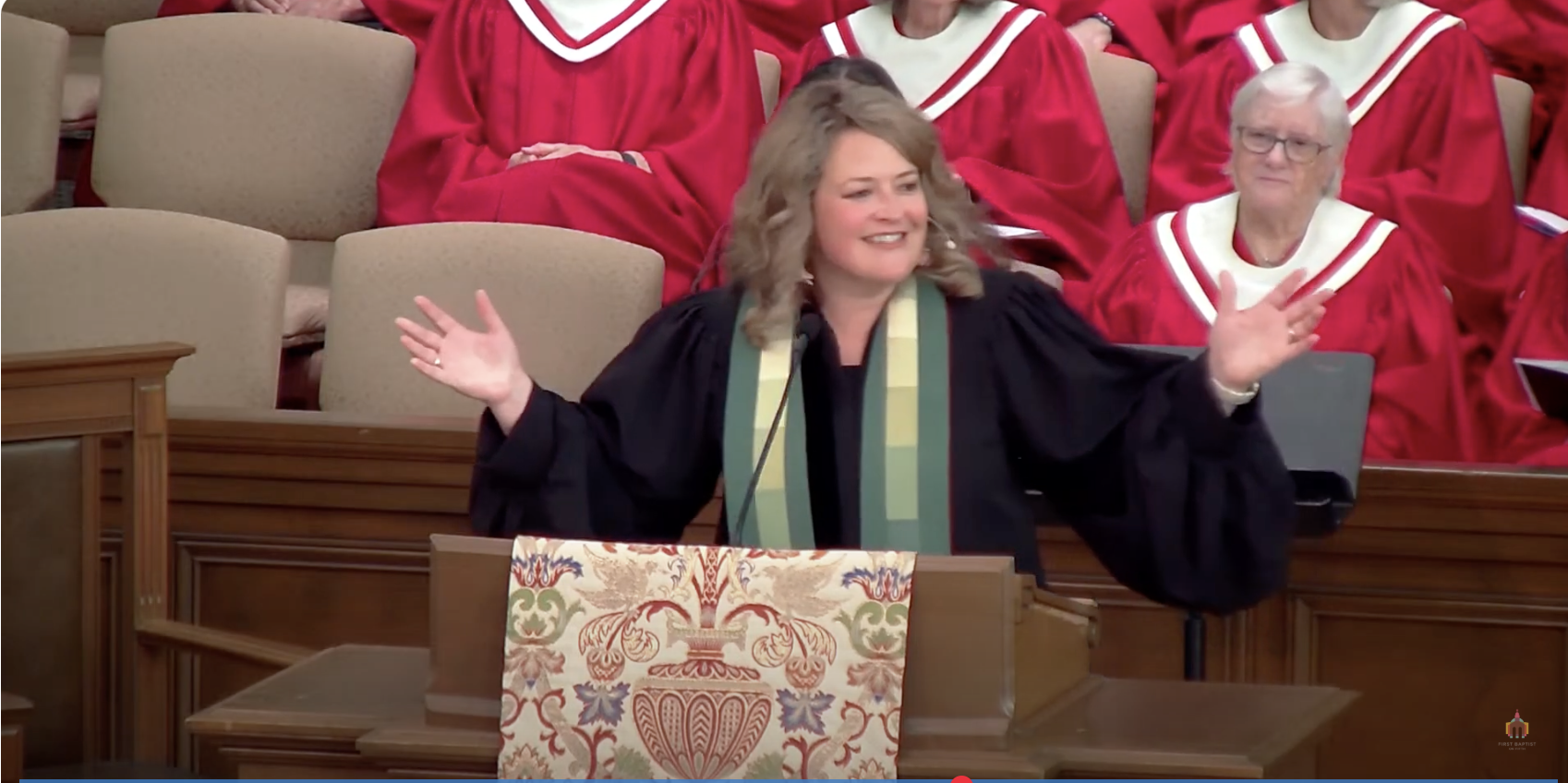IIt’s Ash Wednesday, the day in our Christian year when we consider the
truth of our finality and fragility: that ‘from dust we came, and to the dust we
shall return.’ It’s a somber reminder anytime for people who would prefer not
to think of our certain death someday, but Ash Wednesday holds particular
poignancy to humanity after the mountain of suffering we all have climbed
over these recent years. In the traumas we’ve born, the fears we’ve carried,
the anger we’ve held, the exhaustion we’ve felt, it seems as if daily we have
experienced that emergency Joel describes, the spare, barrenness of Lent,
and the longing to return to God, return to what we’ve known, return to life.
Thus, perhaps the last thing you feel like you need right now is more time to
go without and draw inward.
Into such a landscape, this night begins the six week journey of Lent
that will lead us to the cross of Christ. The word “Lent” comes from the Old
English word for “lengthen,” which can also mean ‘spring season.’ Even as we
remember Lent’s light gift – and hear that Phyllis Tickle once called Lent, “the
days of greatest calm in the church’s year”1 – it could be easy to hear of dust
and feel the sting of suffering and sacrifice. It could be logical to assume that
Ash Wednesday in all its dustiness becomes the invitation to a barren, dry,
wilderness season, one deprived of the richness of abundance.
Yet this year, our work through the Sermon on the Mount, listening
carefully to Jesus’ “Lessons Along the Way,” grounds us in our Lenten journey. 1 As quoted in All Shall Be Well: Readingsfor Lent & Easter, p85.
For tonight, we hear Jesus speak about practices of the faith with a clear note
of warning about the witness they offer. As the old joke goes, “it was once
said that many people would be equally shocked to hear Christianity doubted
or to see it practiced.” Because of course, the Christian faith is not just a
collection of ideas to be believed; it is also a set of deeds to be performed.2 Let’s lean in to hear how Jesus describes these practices.
“Beware of practicing your piety before others,” Jesus says. “Don’t
sound the trumpet when you give money in order to be praised, or pray at the
synagogues and street corners in order to be seen, or fast with a woeful face
in order to be pitied.” These three practices of the faith – making offerings on
behalf of the poor, and praying, and fasting – would have been familiar to
Jesus’ listeners, significant disciplines rooted in their Jewish faith. But the
clear boundaries Jesus puts around these practices is who does the seeing
here. These actions he calls us to do are not for others to praise or to see or to
pity – no. They’re for God!
Let’s be clear too: these aren’t the type of “salt and light” practices
intended to be performed in and on behalf of the world, but rather the inner
practices, the interior disciplines of the faith. These aren’t practices that
center another, rather they’re practices that center God, they’re for God,
they’re offered to God from the very intimacy of the human heart.
IILast year on Ash Wednesday, I wondered on behalf of all of us — that in
light of this long-suffering season we’ve experienced, perhaps this isn’t the
year to commit to the most austere Lenten practices or to give up something2 Thanks to Tom Long for both this old joke and the line about the Christian faith here, Matthew, Westminster Bible Companion, p65. that brings you true joy, referencing the longstanding Christian practice of
“giving up” something for Lent or “adding to” our daily practices of faith. As I
said to us, perhaps this isn’t the year for sinking into shame or beating your
breast or centering one’s mortality on top of what we already all confront
every day. I reminded us that each of these practices are holy and good, but
perhaps they may be more meaningfully expressed in another season. (And
some of you have already told me you plan to do that again this year!) For me,
I found freedom by deepening into Lent’s invitation to return to God, rather
than the invitation to relinquish certain delights or reflect upon certain
death. Maybe you did too.
This year, I’m wondering aloud with us about practicing being seen by
God, in the same way Jesus asks us to direct our inner piety to God’s eyes, not
another’s. I wonder too if the practices of this season could filter through the
truth that God looks upon each of us and sees us as very, very good, beloved
even! I wonder if your Lenten practices could measure their devotion, not by
some idea about what a good Christian looks like, or what you should do
because of an expectation you have carried, but rather to the abundant
belovedness God has for you.
Perhaps it might sound like this –
Because I am God’s beloved, because God sees me as so very, very
good, I will use these days to return to my beloved body, created in the image
of God, the care of God instead of eating my stress in snacks throughout the
day, or pushing it to perform in an endless hamster wheel of work, or
languishing in fear or paralysis for hour after hour in front of the TV at home.
Because I am God’s beloved, I will return to my beloved mind the
wisdom of God by loosening the grip I have over always being right, or
softening the monkey mind of my anxiety into breath prayers and centering
silence, or turning my attention away from all that distracts me and grabs me
so that I can turn it instead to that which heals me and cares for me and lifts
me to God.
Because I am God’s beloved, I will return to my beloved heart the
compassion of God by prioritizing its well-being as much as I’m prioritizing
the well-being of others, saying no when relationships diminish my sense of
self-worth and yes to relationships which honor it, turning away from a habit
or lonely practice that always leaves me feeling worse after than before.
Whatever practice you give up or take on, maybe you even say it out
loud. “I am God’s beloved. I am God’s beloved! Therefore, I’m passing on this
sweet, or that beer, or this passive aggressiveness, or that gossip, or this
habit, or that desire, or this obsessive worry, or that fearful action – not
because I’m trying to be good, but because I already am good. God told me so.
I am God’s beloved, and I’m going to trust that and treat myself that way,
shape the rhythms and practices of my day out of that truth. Out of that care.
Out of that wisdom. Out of that compassion. Out of that belovedness. As an
act of deep devotion and faithfulness. For 40 days, at least. And then, of
course, perhaps for a lifetime.
Trading self-rejection for God-shaped care. Exchanging self-criticism
for God-shaped compassion. Relinquishing self-centeredness for
God-shaped expansiveness. Tending our inner life with all the care and
attention it deserves. Giving up all the shoulds, and the have nots, and the depravity so that we can add on the lush, abundant, unconditional,
ever-flowing grace and mercy and love of God. For this love is a love which
rests in the very dust of which we were formed, carries us through the living
of these days, and returns to God at the end of this life. It sticks and stays, far
longer than these ashes will on our brow.
IIIFred Craddock was one of the great preachers of the 20th century, and
an even finer storyteller. He once told a story that went like this:
“I was visiting in the home of a former student of mine, and after a great
dinner, the hosts excused themselves in order to put the children to bed. They
left me alone in the living room with the family pet, a large, friendly
greyhound.
With the family out of the room, I knelt down and started petting the
dog. I said, ‘You’re a good doggie, a beautiful doggie…how are you doing, Mr.
Greyhound?’” Fred says, “I swear it’s true, that greyhound turned and looked
up at me and said, ‘I’m doing great; thank you very much. Thanks for asking.’”
The preacher was taken aback. He had heard of miracles, but never a
talking dog! So he asks, “Are you a talking dog?” The old dog barked and said,
“Yes, I’m a talking dog. Rather amazing, don’t you think?”
The preacher said, “That’s amazing! I understand that you used to be a
racing greyhound.” The dog said, “Yes, I was. But I quit.”
Fred said, “You quit? Why in the world did you quit? Did you quit
because they didn’t treat you well?” The dog said, “Oh, no, they treated me
wonderfully. They gave me the best care. They brushed me every day. They
fed me the best food. It was great. But I quit.”
“Did you quit because you didn’t like racing?” asked the preacher.
“Oh no,” said the greyhound. “I loved the feel of the wind in my face.”
“Well, why did you quit?” asked the preacher. “Was it because you
never won a race?”
“Oh no,” said the greyhound. “I won race after race. I won lots of
trophies and lots of money for my owner.”
“Well, then, why did you quit?” asked the preacher.
The dog said, “If you really want to know…one day I was running as fast
as I could. I was running faster than I had ever run in my life and I caught up
with the rabbit and I discovered that it wasn’t even a real rabbit! All of my life
I had been running round and round in circles, trying to catch something that
wasn’t even real.”3
IVWhat is real is that we are seen and known and loved by God. What is
real is that Lent offers us the invitation to stop if but for a moment, to let go
of all the rabbits we’re chasing and instead rest in our belovedness by God.
What is real is that in so doing, God will see it too.
In a moment, we’ll impose ashes upon our brow, and remember that you
are dust. Smeared into your skin, this mark of dust blesses and celebrates the
earthen vessel through which love is known. This mark reminds you that one
day this body will reach its end, but until then, it holds infinite possibilities of
life. This mark means that throughout all the changing seasons of life, when
all else fails, you belong to God, beloved and claimed and created in God’s
image and called very very good.
When you feel the press of finitude, may you also feel the imposition of
the future. Of hope. Of what will be. Of life. May you return to God.
Remember that you are dust, friends! Return to God who sees you and
welcomes you home again. Amen.





